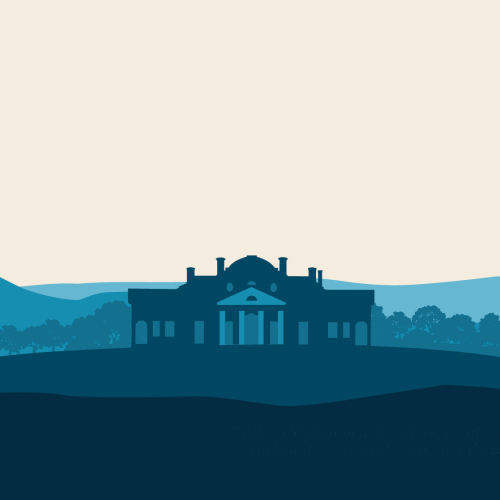Mission Statement
Chartered in 1923, the Thomas Jefferson Foundation remains committed to a twofold mission:
- Preservation: to conserve, protect, and maintain Monticello for future generations; and
- Education: to interpret and present Thomas Jefferson and his world.
Vision: Embrace the Climb
In ten years, Monticello will be recognized as the country’s premier historical destination for visitors of all ages, from all nations, on site and online. Our dedicated staff leverages the power of a beautiful, resonant, and carefully preserved historic site to tell unflinching stories of America’s complex origins and fitful progress toward the ideals Jefferson articulated in the Declaration of Independence. As a civil society organization, we help to build skills that allow all people to activate their self-governing potential. We seek to restore faith in the vitality of the American experiment, honestly explored and perpetually renewed.
Like its architect Thomas Jefferson, Monticello – the “little mountain” – is a site of paradox. The mountaintop was the home of America's foremost philosopher of liberty, the primary author of the transcendent values statement upon which the United States was founded. It was also home to some four hundred of the more than six hundred men, women, and children whom that pillar of liberty enslaved over the course of his lifetime, all the while writing with great perceptiveness about slavery’s moral evil. Monticello embraces Jefferson’s paradoxes as a taproot of our past, as a window into our present, and as a downpayment on our future. “I like the dreams of the future better than the history of the past,” Jefferson wrote to John Adams in the summer of 1816. Monticello teaches that we need the history of the past if we are to achieve the dreams of the future.
Today as in Jefferson’s lifetime, Monticello is a laboratory. Our expert staff are relentless in the pursuit of truth and the discovery and preservation of evidence: archaeological materials and historic buildings, furniture and paintings, books and letters, historic plants, and the oral histories of descendants of Monticello’s enslaved community. Monticello is arguably the best documented plantation in the world, which allows us to serve as a site of reclamation confronting a history of separation. As a holder of truths and a repository of public trust, we will continue to build our programs upon a foundation of rigorous research. In the coming years, we will be more intentional about the ways we nurture the scholarship that comprises “Jefferson Studies,” and the ways we share it with a broad public.
Monticello’s principal wealth consists of stories both difficult and inspiring. Every day, we both steward and augment that story-wealth, documenting the diversity and unlimited potential of we, the American people. As we share stories of pride and perseverance from the past, we inspire our guests to undertake the hard work of building a more perfect democracy. We bring people together across divides, embracing the Jeffersonian virtues of pluralism, expressive freedom, and robust but civil disagreement. At a time when many have lost faith in our union, we help Americans to envision a future where all men are created equal – the most aspirational sentence of the world’s most aspirational document – inches closer to reality.
Monticello recognizes that the health of our democracy and that of our environment are deeply entwined. The link between democracy and the natural world is one that Jefferson himself insisted upon. For more than a century, the Thomas Jefferson Foundation has preserved and restored thousands of acres of Jefferson lands beyond the historic mountaintop. In the decade ahead, we will more deliberately integrate history and ecology in the scholarship we sponsor and the experiences we offer to guests. We commit to deepening our historical landscape interpretation, improving community access to our trails, and reducing our carbon footprint.
Monticello’s hospitality connects public audiences to us and to one another through shared encounters with history, food, wine, architecture and the arts, and natural beauty. We will create meaningful, uplifting experiences on and beyond the mountaintop. To scale and sustain that engagement, we will build our digital capacities. We will nourish the professional growth of our staff, striving to ensure that Monticello is as great a place to work as it is to visit.
Jefferson designed Monticello as a place apart. Even as we seek to reduce barriers to access, and to multiply partnerships that enhance our impact and sustainability, we embrace the fact that Monticello will always require a journey: through space, time, and possibility. A visit to Monticello inspires both awe and commitment. We share a seriousness of purpose that is compatible with joy and with pride, not only in our past, but in the possibilities of the American future.
